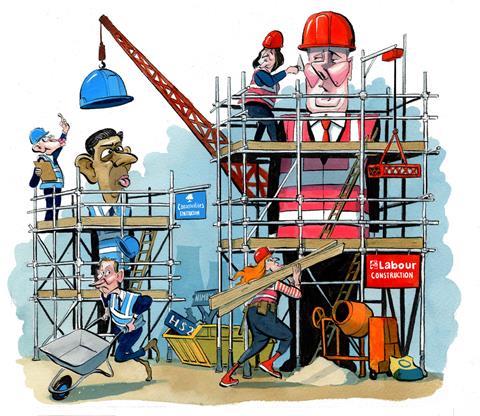Building’s frequently-updated policy tracker will keep you up to speed on the latest pledges and announcements made by the parties in the run up to polling day

Updated: 20 June 2024
Keeping track of what the two main parties in England stand for can be a headache these days given the amount of U-turns seen in the past few months.
Both Labour and the Conservatives have rowed back on green pledges that had previously been at the centre of their economic visions.
Housing targets seem to have been kept deliberately vague, future phases of HS2 are all but dead, and there might be some planning reforms in the mix somewhere, although what these will be is anyone’s guess.
As we await the parties’ manifestos now that the 4th July election has been called, we have compiled a list of where the Conservatives and Labour currently stand on six key construction policy areas.
Building will update and expand this list as more details emerge.
| Policy area | Conservatives | Labour |
|---|---|---|
|
Housing |
|
|
|
Planning |
|
|
|
Infrastructure |
|
|
|
Skills |
|
|
|
Net zero |
|
|
Election focus

As thoughts turn towards the next general election, the UK is facing some serious problems.
Low growth, flatlining productivity, question marks over net zero funding and capability, skills shortages and a worsening housing crisis all amount to a daunting in-tray for the next government.
This year’s general election therefore has very high stakes for the built environment and the economy as a whole. For this reason,
Building’s election coverage aims to help the industry understand the issues and amplify construction’s voice so that the parties hears it loud and clear.


























No comments yet